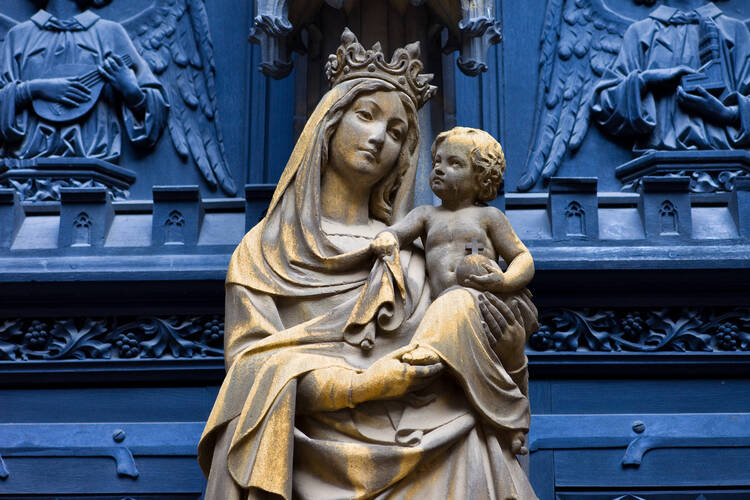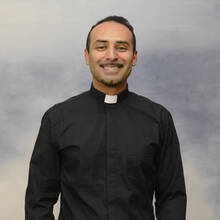Aaron, Mary and the priestly blessing: A suggestion for the New Year
To channel God’s blessing to another person in antiquity resembled both a human touch and a gesture of sacred promise.
The first reading on this Octave Day of Christmas is known within biblical studies as the “priestly blessing.” Aaron and his priestly descendants used the sacred Hebrew name of the Lord to bless the people of God. The blessing is worth memorization:
The Lord bless you and keep you
The Lord let his face shine on you and be gracious to you
The Lord look upon you kindly and give you peace. (Nm 6:24-26)
Aaron and his descendants, however, are not blessing Israel in their own name. Rather, they channel a blessing that comes directly from the Lord. In the original Hebrew, the last line of today’s first reading contains a first-person emphatic form, “I, myself, will bless them” (Nm 6:27).
This text is ancient. Some of the earliest written artifacts from Jerusalem include two silver amulets inscribed with the priestly blessing, probably meant to be worn about the neck to ward off evil. These amulets, known as the Ketef Hinnom inscriptions and dating to the late 7th century B.C.E., reveal the profound influence that this blessing formula had on the religious practice of generations of Israelites. Reminders of God's own blessing served as a comfort and kept alive awareness of God's active presence.
Mary, as the original and exemplary disciple, reminds Christ’s followers to act as channels of blessing to all they encounter.
Christians throughout the centuries have seen in the Mother of God a similar channel of blessing. This is what the church celebrates in today’s solemnity. Jesus, the Son of God and Mary, is an incarnation of the priestly blessing for the world. Whenever anyone calls upon this holy child, God blesses, protects, looks upon with grace and confers kindness and peace. Mary is the fundamental channel of God’s grace in the new covenant. Mary, as the original and exemplary disciple, reminds Christ’s followers to act as channels of blessing to all they encounter. To channel and bless in this manner builds up the human family.
I have a distinct memory of a moment when my mother was a channel for divine grace. My sister and I were traveling far from home for the first time. Before we left our house to take a taxi to the airport, my mother proceeded to trace the sign of the cross over us. This small, poignant ritual served as an expression of her maternal love, and transformed her into a channel of God's priestly blessing.
Take time this week to bless someone as the new year begins. This can happen in silent prayer or personal encounter when we make the words of the priestly blessing our own. Something like this:
The Lord provide you with what you need today and protect you from harm,
The Lord’s friendship be with you and mercy to temper his justice,
The Lord’s kindness overwhelm you and provide you with wholeness.
May the Lord bless you.








